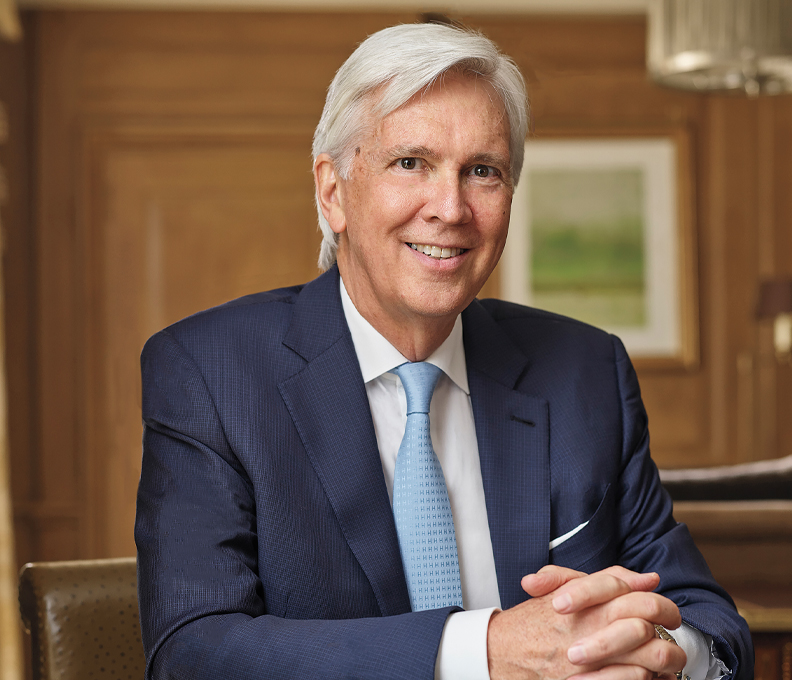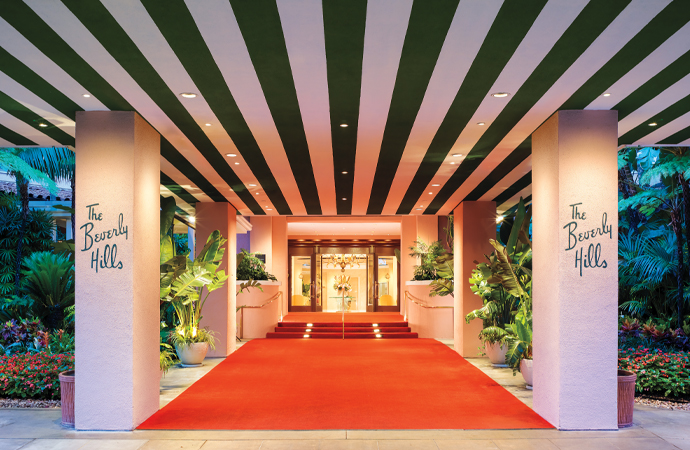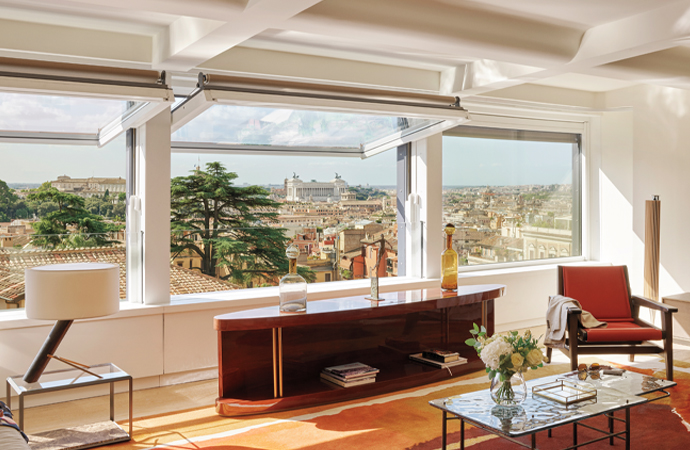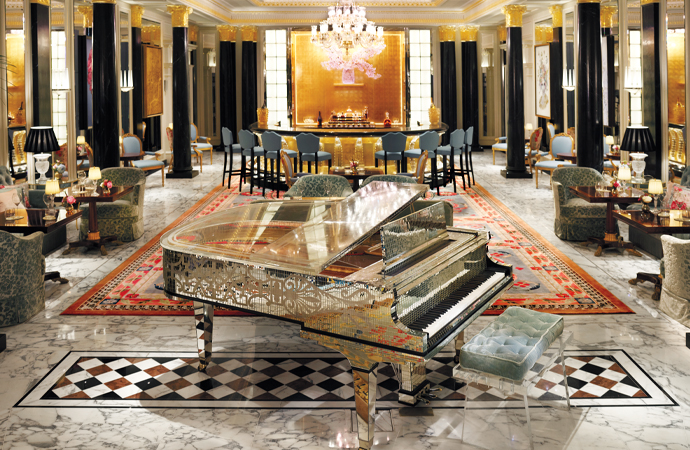How Dorchester Collection Thrived After the Pandemic
Dorchester Collection president Christopher Cowdray talks sustainability, the importance of staff, and lessons learned from the pandemic
by Sahar Khan
July 26, 2023

Dorchester Collection president Christopher Cowdray / Photo: Courtesy of Dorchester Collection
When the pandemic hit, the Dorchester Collection closed seven of its nine hotels but did not lay off any staff members. Guiding the hotel management company through the pandemic was CEO Christopher Cowdray, who has been at its helm since 2007. “We demonstrated as a company that we were going to not only look after you financially but also make sure that you had total job security,” he says. “We communicated that to ensure employees were brought along on that journey.”

The Beverly Hills Hotel, California / Photo: Courtesy of Dorchester Collection
The Dorchester Collection operates iconic hotels such as The Dorchester in London, Hôtel Plaza Athénée in Paris, The Beverly Hills Hotel, and Hotel Eden in Rome. This fall, the group will debut its latest property—The Lana in Dubai, housed in a building designed by Norman Foster.
Last year was the most profitable in the company’s history, despite its top earner, The Dorchester, being shuttered during most of 2022. Although Cowdray says much of that success was because “the top had come off the pressure cooker” after two years of travel restrictions, he also credits the company’s emphasis on happy staff—a key tenet of its We Care philosophy—with helping the hotels bounce back quickly post-pandemic. “We know how very important our people are to our success and to the relationships with our guests,” he says.
Cowdray has honed his instinct for hospitality over a more than 40-year career. Born and raised in Zimbabwe, he considered becoming a chartered accountant but the world of hospitality beckoned with the promise of travel. After studying hotel management, he cut his teeth managing Saudi Arabia’s palace division in Riyadh and Dammam, where the kingdom hosted heads of state and foreign dignitaries. Managerial posts at the Inter-Continental in Muscat followed in the early 1990s. By 1998, he added managing director of the storied Claridge’s hotel in London to his résumé. Then, in 2004, another illustrious institution in the British capital came calling.

Hotel Eden, Rome / Photo: Courtesy of Dorchester Collection
Cowdray originally joined The Dorchester hotel as general manager. During his three-year tenure, he oversaw the renovation of its public areas and roof suites. At the time, the Dorchester Collection owned five individually operated hotels. “There was no synergy amongst the five of them at all,” he says. Cowdray pitched the idea to create a management company that would administer the properties in a cohesive manner and allow for expansion of the company’s portfolio. Cowdray was appointed CEO of the new management company in 2007. Since then, he has expanded the brand to include 10 hotels and five residential properties across Europe, the UAE and the U.S. A hotel in Japan’s tallest skyscraper is set to open in Tokyo in 2028. Cowdray is also looking to open in key markets including New York, Shanghai, Beijing, Sydney and Singapore.
The post-pandemic era comes with a new set of challenges for the hospitality industry. Cowdray says its current biggest obstacle is finding the right people. “A lot of things changed during the pandemic: people’s perceptions, changing habits, considering different career paths, working from home, all of those factors have impacted the labor market,” he says, adding that he believes this is a transitional period that will settle over the next two years.

The Dorchester, London / Photo: Courtesy of Dorchester Collection
Sustainability is another challenge, one that is “very high on our agenda.” When Coworth Park in Ascot opened in 2010, it was “probably one of the most advanced hotels in this country in terms of sustainability,” he says. Air conditioning is provided by naturally cool air coming in through underground heat pumps rather than mechanical coolers. A biomass boiler runs on willow trees specifically planted on the property for energy use. And at Los Angeles’ Hotel Bel-Air, solar panels will provide 100 percent of the electricity by the end of the year. The Dorchester Collection is also working on eradicating plastic from all properties.
Cowdray’s tenure leading some of the world’s most prestigious hotels has taught him many lessons, but “Covid is by far the biggest,” he says. “In hotels you’re always in crises of some sort, whether we have a flood or maybe a small fire. But Covid was very different. You had this situation that was completely out of your control. Making sure you brought your teams along with you required continuous energy to make sure there was strong communication.” That included company-wide activities such as cooking competitions and celebrations for staff members over Zoom. But Cowdray acknowledges that the pandemic’s silver lining is that it made the Dorchester Collection a “much stronger organization culturally than we were before.”
As he’s talking, an alarm goes off. A colleague comes in and says there’s a gas leak in the building and they must evacuate. As Cowdray signs off he says with a laugh, “I love a crisis, as you see.”




